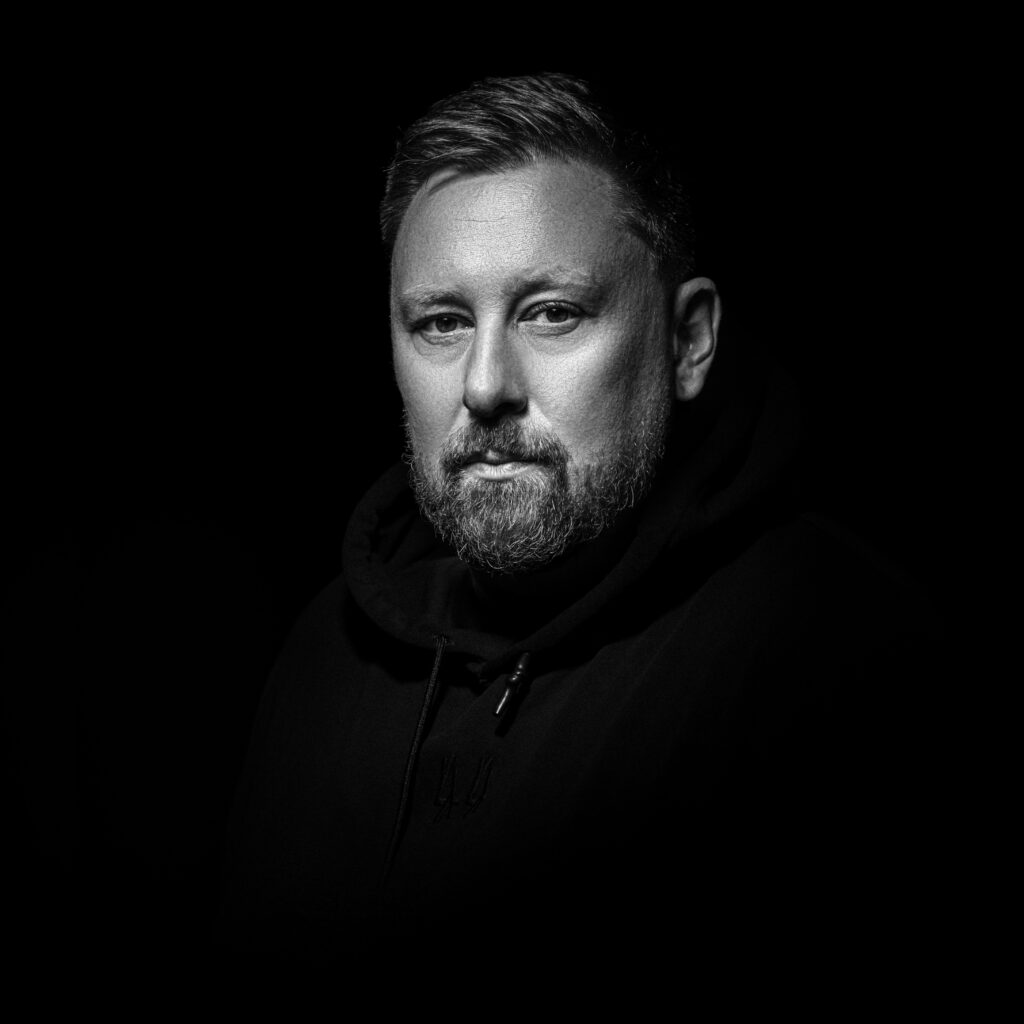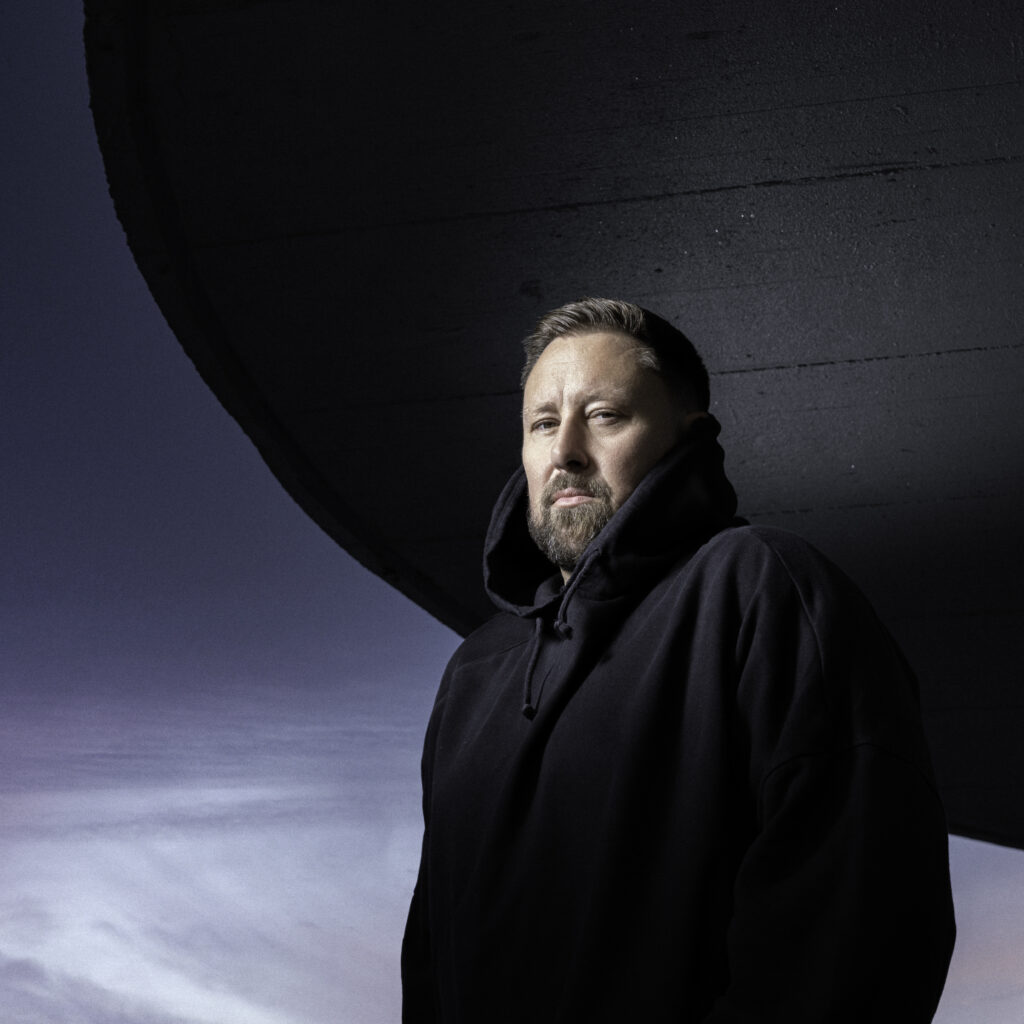UMEK, dj e producer sloveno che ha cavalcato tutti i sound e movimenti che il mondo elettronico ha attraversato, si racconta in un’intervista che ripercorre trent’anni di carriera.
UMEK è un nome che non ha bisogno di presentazioni. Dagli esordi nei club di Lubiana negli anni ’90, il dj e producer sloveno ha cavalcato tutti i sound e movimenti che il mondo elettronico ha attraversato: dalla techno alla house, dalla minimal all’EDM; fino alla fondazione della sua label 1605 e all’apporto nella creazione di Viberate, che si è rapidamente imposta come uno degli standard nel settore delle piattaforme musicali analitiche.
Oggi, a 48 anni, UMEK non sembra volersi fermare, come conferma la sua ultima uscita “Warm up the sub” su Filth On Acid di Reinier Zonneveld e la mole di produzioni uscite negli ultimi anni. Vero pioniere della scena Slovena e nome di spicco del panorama elettronico mondiale, UMEK ha sicuramente una storia da raccontare e noi di Parkett siamo entusiasti di ascoltarla.
Ecco la nostra intervista a UMEK:
Ciao Umek e benvenuto! Partiamo dalla tua ultima release: “Warm up the sub”, recentemente uscito su Filth On Acid di Reinier Zonneveld, che è solo l’ultimo tassello di una carriera longevissima. Come sta UMEK e come sta evolvendo in questa fase della sua carriera?
Sto alla grande, grazie per averlo chiesto. Per me non è cambiato molto: continuo a fare tour in giro per il mondo e passo tanto tempo in studio a lavorare su nuovi brani. Questo è qualcosa che non cambierà mai. Penso che continuerò a produrre musica anche da vecchio, perché è una cosa che amo profondamente.
Se potessi rivivere un periodo o un momento specifico della tua carriera trentennale come DJ e produttore, quale sceglieresti?
Tornerei agli inizi della mia carriera. Perché? Beh, era un momento incerto, ma tutto sembrava possibile. Non c’erano garanzie, bisognava lottare per ottenere serate, creare i primi brani e promuovere il proprio nome. Tutto era fresco, nuovo e sorprendente. Questi sono i veri momenti da valorizzare! Oggi i giovani DJ e produttori non apprezzano la “fatica” degli esordi, ma credetemi: è il periodo più entusiasmante delle loro vite. È il viaggio che conta, non solo il successo.
Quest’anno segna il 17° anniversario della tua etichetta 1605. Quali sono i suoi valori e perché la descrivi come un’etichetta “data-driven”?
Sono già passati 17 anni? Non lo avevo nemmeno realizzato! L’approccio data-driven è solo parziale per 1605, i dati mi aiutano sicurametne a selezionare gli artisti, ad esempio Mha Iri, che era nella mia etichetta, amavo la sua musica e il modo in cui lavorava. I dati mostravano che avrebbe avuto successo grazie al suo uso dei social media e alla sua interazione con i fan, tuttavia, la prima cosa che considero in un artista è sempre la musica, poi le abilità da DJ e il lavoro complessivo. Solo dopo vengono i dati.
Come vedi l’uso dell’intelligenza artificiale generativa nella creazione di tracce? Potrebbe essere utile per l’industria della musica elettronica?
In realtà già la uso spesso, o almeno sto cercando di implementarla nel mio processo creativo, ad esempio con software come Yudio e Suno. Questi strumenti aiutano a superare le barriere mentali e a generare idee nuove e fresche. Possono suggerire quanto lontano potrebbe andare una release o fornire campioni utili quando non trovi il suono o la voce giusta. La qualità attuale di questa tecnologia non è ancora al top, ma penso che possa diventare un’ottima risorsa.
Parliamo di Viberate. Come co-fondatore, hai visto crescere la piattaforma. Come sta andando e quali sono i piani futuri?
Negli ultimi due anni non sono stato molto coinvolto. Il team sta facendo un ottimo lavoro, e la piattaforma continua a crescere. Stiamo sviluppando nuovi prodotti e funzionalità, ma non sono aggiornato sui dettagli. Per approfondimenti, Vasya (Veber, co-founder ndr) di Viberate potrebbe fornire più informazioni.
Hai contribuito a sviluppare la scena elettronica in Slovenia per oltre tre decenni. Com’è la scena clubbing a Lubiana e in che direzione sta andando?
La scena musicale è buona a livello globale, ma i club non sono sempre all’altezza. A Lubiana mancano venue di medie dimensioni: abbiamo piccoli club per 200 persone e grandi venue per 3000-4000 persone. Servono club intermedi per costruire un pubblico e una scena solida.
Tra i tanti live che hai fatto, qual è il miglior club o scena che hai visto?
Non posso scegliere un club preferito. Ogni weekend suono in almeno due posti e almeno uno dei due è fantastico. Per me, un buon club si definisce dalla reazione del pubblico. Se l’atmosfera è giusta, sono felice, indipendentemente dalle dimensioni.
Qual è il futuro del clubbing in Europa, data la crisi attuale e le recenti chiusure di venue storiche?
Ci sono sempre stati alti e bassi in quest’industria. Negli ultimi anni, i grandi festival sono stati al top, ma la storia si ripete sempre: torneremo ai club e poi di nuovo ai festival e viceversa. È il ciclo vitale di questo mondo.

ENGLISH VERSION
Hi UMEK and welcome! Let’s start with “Warm up the sub”, your latest release on Reinier Zonneveld’s Filth On Acid is just the last piece of a prolific career. How is UMEK doing and how is he evolving at this stage of his career?
Hey, I’m doing great, thanks for asking. Yeah, nothing really changed for me. I’m still touring around the world and I’m in the studio whenever I can. I spend a lot of time in the studio working on some new beats and I guess these things never change. I’m able to produce until I’m old and to be honest, I think I’m not going to stop, because I f*cking love it.
You are granted to relive one specific time period (or moment) you witnessed in your 30 years as a DJ and producer, which one do you choose?
I would actually go back to the beginning of my career. Why? – Because it was that uncertain time when everything was possible.
At the same time, nothing was guaranteed, you know? Struggling to get gigs, make first beats, and promote my name… everything was so fresh, so new, and unexpected. These are the moments that we need to cherish! New DJs and producers don’t appreciate the pain right now because they don’t succeed, but believe me: this is the time of the most exciting time of their lives. It’s the road that matters – not just the success.
This year marks the 17 anniversary of your own label 1605, what are its values and why do you describe it as a “Data-Driven Techno Label”?
It’s already 17 years? – I honestly didn’t know that!
It’s only data-driven to a certain degree. It’s not that I choose material by data only. The data helps me to assign artists.
For example: Mha Iri, which used to be on 1605. I loved her music. I loved how she was working on things. The data showed that she was going to succeed because she was doing an amazing job with social media. She was answering all the questions, and replying to the people who were commenting on her page and that’s what made her different. When I see the data charts of the artists and then I can get a better view of her work. But the first thing when I see an artist, is still the music! The DJ skills, the appearance, and everything surrounding her actual work. After that comes the data.
How do you see the use of generative-AI in the process of creating a track? How would it benefit the electronic music industry?
I actually use it already! Or let’s say I’m trying to implement software like “Yudio” and “Suno” because it’s kind of helpful to get an idea.
It helps you to see the potential where your track could go. Programs like these don’t have the mental barrier in your mind and the support you sometimes in overcoming these.
You just give it a track and it sometimes gives you crazy ideas on what you could do with it. I still think that the quality of the tracks and stems is not there yet, but I think It could be a great sample bank. If you don’t know how to find the right melody or the vocal, this can help you to find it sometimes.
Let’s talk about Viberate. As one of its co-founders, it quickly became an established platform for artists and music business affiliates as well. How is it going and what’s the roadmap for the project?
In the last two years, I have not been involved that much. The guys are doing their job great and it’s still going strong. We are constantly developing new products in terms of Vibrate. I can’t tell you much about it because I’m not there on a day-to-day basis. Vasya from Vibrate can tell you way more – he can give you answers to all of your questions.
You came from Slovenja and helped develop the electronic scene there for over three decades. How is the club scene thriving in your hometown of Ljubljana and where do you see it going?
The heart scene seems to be quite good everywhere around the world, but in terms of clubs, it’s not that perfect. There are moments where something cool is happening, but except for Heartbeats, everything is a little bit quiet. In my opinion, we need more mid-size clubs where you could bring popular mid-size DJs. Right now, you either have underground clubs for 200 people or you have large venues for three to four thousand people. We are clearly missing something in between because I think this is where the good core of the audience and the scene is made.
Playing so many shows every year, what’s the best club or club scene UMEK came across?
I really cannot tell you what’s your favorite club. Whenever I play on the weekend, I have at least two gigs and one of those clubs is great most of the time. But I think it’s a bit unfair to rate clubs based on my opinion because I’m not shocked by a big club. It doesn’t matter what size the venue is, whenever the vibe is good – I’m happy.
So basically: The definition of a good club is determined first by the reaction of the crowd and how they are into the music, that’s my criteria. Luckily, I come across that quite often.
What’s the direction clubbing is going during this crisis in Europe with the recent closures?
There are always oscillations. There are many ups and downs. Big festivals have been on top of their game for the last few years and let me tell you something: history repeats! I think it’s a back-and-forth. Soon we are going to go back to clubs and then back again to festivals. It’s just a cycle of life of a rave.

